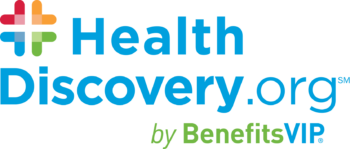Seems like every January people make The Sacred Vow: Lose Weight. But by February, the mind is consumed with unbearable food cravings.
It’s not fair. You’ve been in control of your eating for a whole month and maybe even lost a few pounds. But you’re still hungry with a capital H. Food cravings threaten to undo the progress you’ve made since tossing out that leftover holiday fruitcake and vowing to shed fat.
Food cravings drag you out of bed at night and march you to the kitchen to pillage the pantry.
Are you to blame? Are you weak-willed? Well, for starters, NO.
It’s just your fat calling, according to biochemist Sylvia Tara, Ph.D., author of “The Secret Life of Fat: The Science Behind the Body’s Least Understood Organ and What it Means for You.”
Wait a second, fat is an organ? Yes, and the body has self-defense measures to hold on to fat, according to Dr. Tara and the numerous research studies she describes in the book. For example, fat can use stem cells to regenerate, increase the appetite if it feels threatened, and leverage gut bacteria, viruses and genetics to grow itself.
Researchers are working to ferret out the impact of genes on fat storage. They now know that people who have variations in a gene called FTO tend to crave high-calorie foods more often and may have more body fat. This genetic variation causes an almost twofold increased risk of obesity compared with those who don’t inherit it.
And…
- The protein leptin is secreted by fat cells to suppress appetite. (See, fat can be your friend, too).
- The hormone ghrelin, which is secreted primarily by the stomach, makes a person hungry.
- There is brown fat, white fat and beige fat, and they serve different functions.
Don’t like your body fat? In addition to dieting and exercise, you might be considering alternative therapies, like acupuncture or hypnosis, or more mainstream surgical procedures like stomach stapling or banding, liposuction, etc. The Internet is full of claims about herbal supplements that supposedly melt fat and reduce food cravings. Be very suspicious; some herbal supplements are downright dangerous.
Discuss any weight-loss approach with your doctor.
Do Your Health Insurance Benefits Cover Weight-loss Therapies?
Some do, many don’t. Let’s say your doctor recommends stomach stapling. Your health insurance benefits could deny covering it anyway. Even if your insurer will cover a therapy or a surgical procedure, you need a pre-authorization from your doctor before proceeding. Otherwise expect to fork over $$$ in copays and coinsurance. Read your health insurance benefits coverage info to know your financial responsibilities.
Don’t Forget Your Employer’s Health & Wellness Program
More and more companies are offering worksite health & wellness programs. Some employers offer reduced insurance premiums or other incentives to employees who complete certain activities. These may include walking challenges, weight loss, and/or completing annual preventive screening tests (blood pressure, cholesterol, etc.).
Learn more:
“The Secret Life of Fat” by Biochemist Sylvia Tara in Discover Magazine
Obesity and the FTO Gene by GB HealthWatch
Your Hunger Hormones by WebMD
What is Brown Fat? By Reader’s Digest
11 Ways to Stop Cravings for Unhealthy Foods and Sugar by healthline.com
Bariatric Weight-loss Procedures by American Society for Metabolic and Bariatric Surgery














